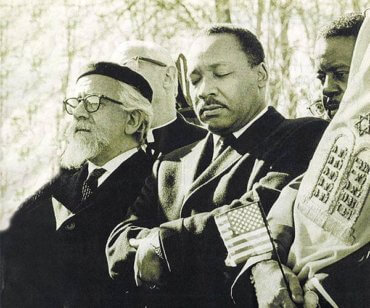
Does Judaism Have A Concept of Inaugurations?
Dear Jew in the City,
With the Presidential Inauguration coming up, I was wondering what Judaism has to say about inaugurations, especially of a new king, and was the transition of power always smooth?
Curious in Georgia
Dear Curious in Georgia,
Well, for starters, kings don’t have inaugurations, they have coronations, but let’s call that a wash.
Originally, the Jewish people didn’t have a king. They were led by Moshe (Moses), then Yehoshua (Joshua), then by a series of Shoftim (Judges) for about 300 years. The last line of the Book of Judges (21:25) says, “In those days there was no king in Israel; everyone did that which was right in his own eyes.” People misinterpret that and assume that, before the first king was appointed, Israel was some kind of lawless anarchy – a Middle Eastern Wild West, if you will. That was very much not the case. There was the Sanhedrin, which served as both legislative and judicial branches, plus the Judges, from whom the Book of Judges derived its name. They were national leaders, on top of the infrastructures in place in each Tribe. The Torah commands us to establish a functioning government, as per Deuteronomy 16:18, “You shall appoint judges and officers in all your gates, which Hashem your God gives to you, tribe by tribe. They will judge the people with righteous judgment.” A king was not part of the original to-do list.
Yes, there are plenty of laws in the Torah about the king but let’s look at how they are introduced. Deuteronomy 17:14-15 says:
When you come into the land that Hashem your God is giving you, and you possess it and live in it, and you say, “I want to set a king over me, like all the nations that are around me,’ then you shall appoint a king over you that Hashem your God will choose. You shall only appoint someone from among your brethren as king over you; you may not appoint over you a foreigner who is not your brother.
So, you will notice two things. First, that appointing a king wasn’t something they were required to do per se, it was something they were permitted to do upon request. The second thing is that the motivation to have a king isn’t the loftiest: “I want to set a king over me, like all the nations that are around me.” Being like every other nation shouldn’t be our goal.
The scenario described by the Torah is exactly what came to pass. The prophet Shmuel (Samuel) had been leader of Israel for many years but he was getting on and his sons were not fit to succeed him. The leaders of the people came and said, “’Behold, you are old and your sons do not walk in your ways. Now appoint a king to judge us like all the nations” (I Samuel 8:5). Shmuel didn’t care for this, so he turned to God for guidance. God said, “Listen to the voice of the people in all that they say to you because they have not rejected you; they have rejected Me, that I should not be King over them” (verse 7). However, before appointing a king for the people, Shmuel was to warn the people of the consequences of this action. These include:
He will take your sons and conscript them for his chariots and to be his horsemen… He will assign them … to plow his ground, to reap his harvest, and to make his instruments of war, and the instruments of his chariots. He will take your daughters to be perfumers, cooks, and bakers. He will take your fields, your vineyards, and your olive yards – even the best of them – and give them to his servants. He will take ten percent of your seed and your vineyards, and give it to his officers and his servants. He will take your male and female servants, your best young men, and your donkeys, and put them to his work. He will take ten percent of your flocks and you will be his servants. You will cry out on that day because of the king you will have chosen for yourselves, and God will not answer you on that day. (I Samuel 8:11-18)
The people, however, insisted. “Nevertheless, we still want a king over us so that we may be like all the other nations, with a king to judge us, and go out before us and fight our battles” (verses 19-20). God acquiesced to their request but that didn’t make it a good thing. In chapter 12, Shmuel chastises the people for insisting on a king. He even works a miracle to demonstrate God’s displeasure, at which point the people finally get the message and declare that they have sinned through this improper request. Shmuel assures them not to worry about it at this point – what’s done is done. They should just keep following God and all will be well. If they stray, however, “you will be swept away, both you and your king” (12:25).
Coronations were generally festive occasions but the transition of power did not always happen smoothly. For example, not everyone accepted David as King Saul’s successor at first, following Saul’s son Ishboshes instead. King David’s son Solomon had to be anointed king (which was usually only done with the first king in a dynasty) because his brother Adoniyahu was making a play for the throne. After King Solomon’s death, ten Tribes seceded and formed their own country rather than follow his son Rehoboam. In the kingdom of Judah, power generally changed hands pretty smoothly from father to son (excluding the anomaly of a coup by Queen Athaliah); the kingship of the ten Tribes changed hands a number of times as a result of assassination.
We see that having a leader with supreme power isn’t the preferred situation but no form of government is perfect. As Winston Churchill said, “Democracy is the worst form of government, except for all the others.” A society requires an organized structure of one form or another in order to function. For this reason, the Mishna in Avos (3:2) teaches, “Pray for the welfare of the government because if not for it, people would devour one another.”
Sincerely yours,
Rabbi Jack Abramowitz, JITC Educational Correspondent
If you found this content meaningful and want to help further our mission through our Keter, Makom, and Tikun branches, please consider becoming a Change Maker today.








1 comment
Sort by
We had the kohen gadol that was anointed.